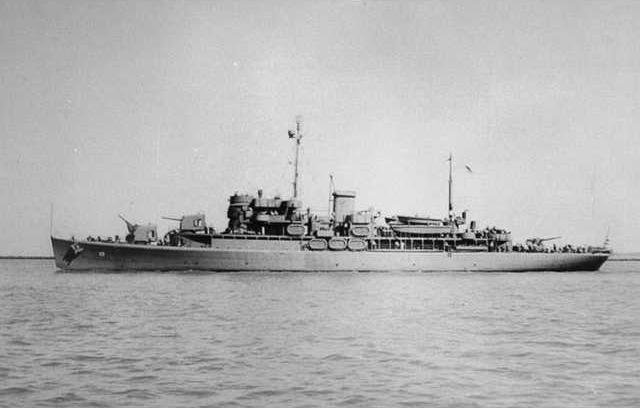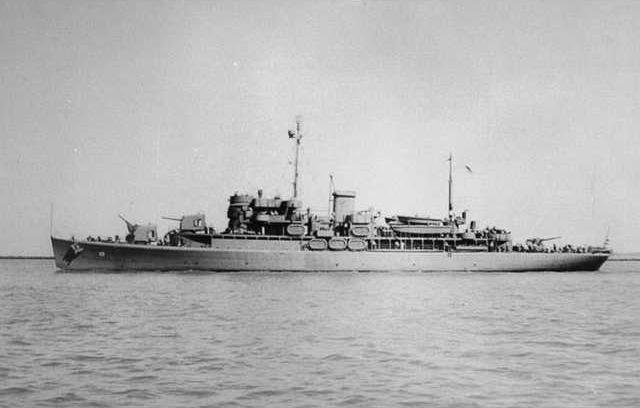A formidable sight, with its length that of three football fields and imposing guns aimed at the sky, the USS Missouri sits anchored today as a memorial in Pearl Harbor.
The battleship, a symbol of U.S. military might in World War II, has etched its place in history as the place where a peace treaty was signed on Sept. 2, 1945, capping the exuberant moment 65 years ago this weekend when the
Japanese surrendered to the Allies.
Memories of those times haven't faded for three area men, who attended the ceremony as part of the vast U.S. military presence in Tokyo Bay.
Two of them, Rhuel Patterson and Hubert Davis, talked
about those historic events in an interview recently at the Northeast Georgia History Center at Brenau University in Gainesville. The other, Jack Blackwell, spoke by phone from his Banks County home.
Strangers before the interview, Patterson and Davis afterward strolled in the center's reflective Freedom Garden, which bears the inscribed names of Hall County veterans - from various wars - on granite pillars.
"The Missouri was sitting kind of in the center (of the
action) and lots of boats were around it," said Hubert Davis, recalling the day. "Our troop ship ... had a good view straight in on the deck (where the peace treaty was signed)."
"Well, we weren't far from each other," Patterson said, reacting to the comment, his eyebrows raised.
Davis, a DeKalb County native now living in White County, was in the Army at the time. Patterson, who grew up in Gainesville and has lived here since 1947, was in the Navy.
Patterson said his ship was just off the Missouri and he could see the ceremony, but, without field glasses, "it was hard to identify people."
"Planes flew all day, I guess you remember that?" he said, looking at Davis.
"Yes," Davis said, nodding his head.
"Just drones of planes all day," Patterson said.
"I could see all the movements on the Missouri, but (the ship) was probably about 200 yards (away)," Davis said. "I could recognize (Gen. Douglas) MacArthur. I saw him later in Japan several times."
After the 33-minute ceremony, Japanese officials and officers were escorted off the Missouri and U.S. Army Air Corps planes "put on a show that lasted ... I don't know how long," Davis said. "I think our ship had already moved out of the harbor and it was still going on."
"I can really remember the feeling when we pulled into that harbor," Patterson said. "Nobody knew what was going to happen. It was an eerie feeling. ... At that time, the papers hadn't been signed."
Jack Blackwell, born and raised in Banks County, entered the Navy in 1943 and toured through the Pacific aboard the destroyer USS Taylor, including the Philippines and the Japanese island of Okinawa, before arriving in Tokyo Bay for the surrender ceremony.
After the atomic blasts took place that convinced Japan to surrender, "we were the first American warship into Japan," he said. "And we were the first American warship to anchor in Japan."
Blackwell's ship brought war correspondents to the Missouri for the ceremony.
"After that was over, we went up into northern Japan - I cannot remember the island - and picked up all the ex-POWs we could get."
Blackwell, who participated in 11 battles in the Pacific, vividly remembers Japan's surrender on Aug. 15, 1945.
"Thank God, it's over," he said, recalling how he felt upon hearing the news. "There was this uproar on the ship of ‘Hurray, hoorah!' We were about 75 miles outside of Tokyo that morning."
For Davis, the war wasn't quite over. He still had dangers to face.
He and fellow soldiers in the 112th Cavalry traveled to Tateyam, Japan, to gather up ammunition to sink in the ocean.
The ammo dump exploded, flattening a nearby hospital, killing 63 U.S. soldiers, and shredding 112th's tents that had been set up near an airstrip.
"We had just settled in and had everything pretty well in order," Davis said.
As the ammo shot off into the sky, "we ran and got behind a concrete wall at the air strip to save our hide."
"I thought (the war was) starting all over again," he said.
Of course, it hadn't. And life would start anew for Davis, Patterson and Blackwell after they returned to the United States, where they started jobs and families.
"For me, it's been a fast, fast 65 years," Davis said. "My umpiring - my second hobby - has kept me going, kept my health good. I can still run."




